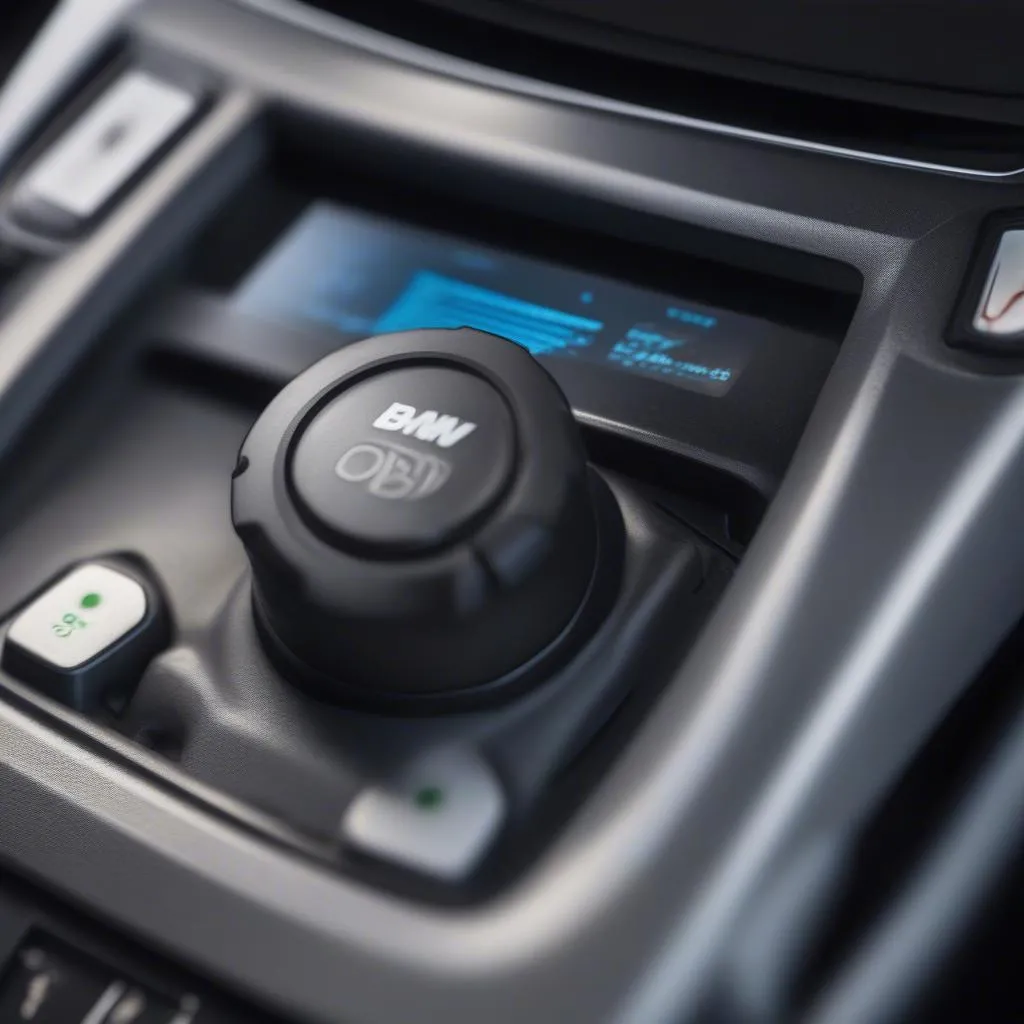Imagine driving your BMW down a bustling city street, suddenly a loud alarm blares, and a flashing red light illuminates your dashboard. You pull over, confused and wondering what triggered the alarm. This isn’t an uncommon scenario, especially for those who own a BMW with the OBD-sensing alarm system. This system, known for its advanced technology, utilizes the car’s On-Board Diagnostics (OBD) port to monitor various aspects of your vehicle’s health and performance.
Understanding the OBD-Sensing Alarm System
What is an OBD-Sensing Alarm System?
An OBD-Sensing Alarm System is a security feature in some BMW models that uses the car’s OBD port to detect and signal potential issues. OBD is a standardized diagnostic communication system that allows technicians to monitor and diagnose car problems using a special tool called an OBD scanner.
How Does it Work?
This system uses a sensor that connects to the OBD port and monitors various engine and transmission parameters. When the sensor detects a malfunction or a potential issue, it triggers the alarm.
Why Do BMWs Use it?
The OBD-sensing alarm system was introduced by BMW as an extra layer of security. It’s designed to:
- Detect potential problems early: By monitoring the car’s health, the system can identify issues before they escalate into major repairs.
- Prevent theft: The alarm system can also act as a deterrent against theft, as it will trigger an alarm if someone attempts to tamper with the vehicle’s OBD port.
- Provide valuable diagnostic information: When the alarm activates, it provides information about the specific issue that needs to be addressed, making it easier for technicians to diagnose and fix the problem.
Common Issues and How to Address Them
Frequent False Alarms
One of the most common issues with this system is frequent false alarms. False alarms can be triggered by a variety of factors, including:
- Loose connections: A loose connection in the wiring of the OBD sensor can cause intermittent issues and trigger false alarms.
- Software glitches: Sometimes, software updates can cause conflicts with the OBD-sensing system, leading to false alarms.
- Environmental factors: Extreme temperatures, dust, or moisture can also cause the sensor to malfunction, triggering false alarms.
Addressing False Alarms
If you’re experiencing frequent false alarms, it’s important to get the issue diagnosed by a qualified technician. They can:
- Inspect the OBD sensor: Check for any loose connections, damage, or signs of corrosion.
- Update the vehicle’s software: Update the software to the latest version to resolve any conflicts with the OBD-sensing system.
- Troubleshoot environmental factors: Check for any external factors that may be affecting the sensor’s performance.
Other Issues with the OBD-Sensing Alarm System
Besides frequent false alarms, you might also encounter issues like:
- The alarm system not working: The alarm might not trigger even when there’s a genuine issue, leaving you unaware of potential problems.
- The alarm system draining the battery: A faulty OBD sensor can sometimes drain the car’s battery.
Solutions for Other Issues
For issues like the alarm not working or battery drain, a qualified technician will:
- Diagnose the issue: Using a diagnostics tool like a Dealer Scanner, the technician will identify the root cause of the problem.
- Repair or replace the sensor: The technician may need to repair or replace the faulty sensor to resolve the issue.
Frequently Asked Questions (FAQ)
- Q: Can I disable the OBD-sensing alarm system?
- A: Disabling the alarm system is not recommended as it defeats the purpose of having it. However, you can consult a qualified technician to see if there are any options to adjust its sensitivity or disable certain triggers.
- Q: What is the best way to maintain the OBD-sensing alarm system?
- A: Maintaining the system involves ensuring proper connections, keeping the sensor clean, and updating the vehicle’s software regularly.
- Q: Is the OBD-sensing alarm system covered under warranty?
- A: The coverage under warranty depends on the specific model and year of your BMW. It’s always best to consult your owner’s manual or contact your local BMW dealer for details.
- Q: Can I install an aftermarket OBD-sensing alarm system?
- A: While you can install aftermarket systems, it’s crucial to ensure they are compatible with your vehicle and meet safety standards. It’s best to consult a qualified technician for advice and installation.
Conclusion
The OBD-Sensing Alarm System in your BMW is a valuable safety and security feature. While it can sometimes trigger false alarms, understanding its functions and addressing any issues promptly can help you get the most out of this technology. Always remember to consult a qualified technician for any concerns or repairs related to this system.
 BMW OBD Sensor
BMW OBD Sensor
 BMW Dealer Scanner
BMW Dealer Scanner
Still have questions? Contact us at Whatsapp: +84767531508 for professional assistance with your BMW’s OBD-Sensing Alarm System. We’re here to help 24/7!